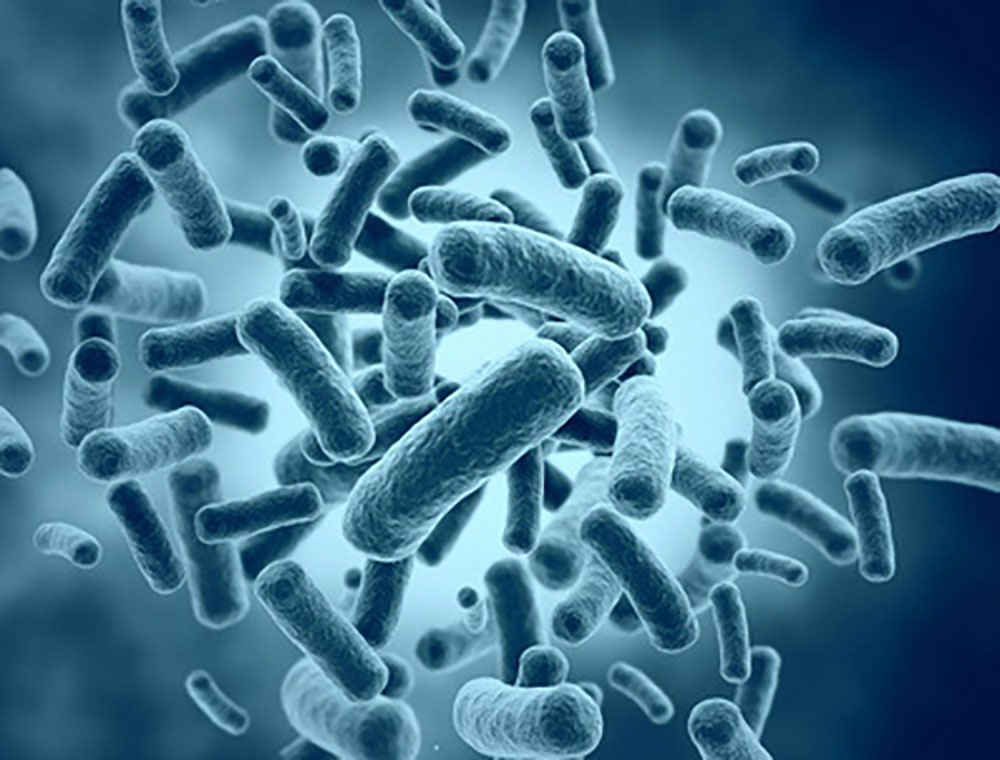Bone marrow transplant can be a lifesaving procedure for patients with blood cancers. However, graft-versus-host disease (GVHD) is a potentially fatal side effect of transplantation. It is common after allogeneic hematopoietic stem cell transplantation (HSCT), the only curative treatment for various types of leukemias. MUSC Hollings Cancer Center researchers now report they found that a single strain of bacteria may be able to reduce the severity of GVHD.
Their findings were published recently in the journal JCI Insight in a paper titled, “A single strain of Bacteroides fragilis protects gut integrity and reduces GVHD.” Their study demonstrates that the future may hold better treatment options for patients with GVHD.
In GVHD, white blood cells from transplant donors recognize recipient cells as non-self and attack recipient tissues. “Damage to the gastrointestinal tract is a main contributor to morbidity and mortality,” the researchers wrote. “The loss of diversity among intestinal bacteria caused by pretransplant conditioning regimens leads to an outgrowth of opportunistic pathogens and exacerbated GVHD after allo-HCT. Using murine models of allo-HCT, we found that an increase of Bacteroides in the intestinal microbiota of the recipients was associated with reduced GVHD in mice given fecal microbial transplantation.”

Patients with blood cancers, such as leukemia, must undergo radiation and chemotherapy before they can go through bone marrow transplantation. However, the radiation and chemotherapy throw off the balance between the immune system and intestinal microbiota, which leads to a condition called “leaky gut.”
The researchers took note of the fact that clinical studies have shown that patients who recover microbiota diversity faster have better outcomes and less severe GVHD and other studies have shown that fecal microbial transplantation (FMT) can be effective at reducing GVHD. However, one of the challenges with FMt is finding the right donor that will not result in infection.
The researchers used two different strains on mice to establish a GVHD model that closely resembles the biology that occurs in humans after bone marrow transplantation. The mice developed acute GVHD. FMT significantly reduced acute GVHD and reduced donor T cell proliferation in the organs.
Genetic sequencing was used to observe which bacteria strains were most different between the fecal material of GVHD mice that received FMT and those that did not receive FMT.
“Administration of Bacteroides fragilis through oral gavage increased gut microbiota diversity and beneficial commensal bacteria and significantly ameliorated acute and chronic GVHD development,” the researchers wrote.
Mice given this single bacterial strain had significantly reduced acute and chronic GVHD compared to mice that did not get Bacteroides fragilis.
To the researchers’ surprise, GVHD was reduced in the model not only by live bacteria, but also by bacteria that had been killed by short exposure to high heat.
“The current study provides a proof of concept that a single strain of commensal bacteria can be a safe and effective means to protect gut integrity and ameliorate GVHD after allo-HCT,” noted the researchers.
“If this can be translated into the clinic, it would be a safer, easier, and more effective treatment option,” added Yu.
More studies are needed before this potential treatment is seen in the clinic. These findings pave the way to find more effective therapies to improve patient outcomes and quality of life.


